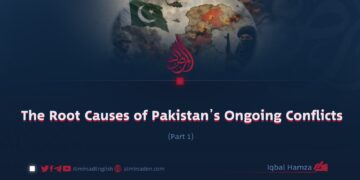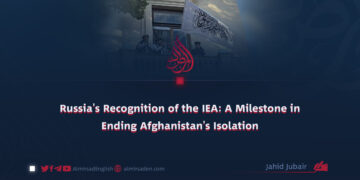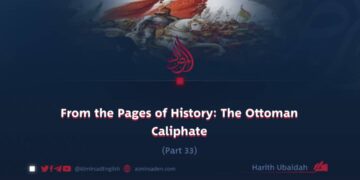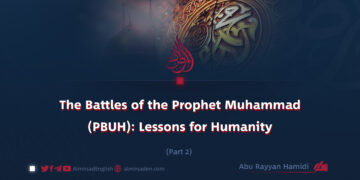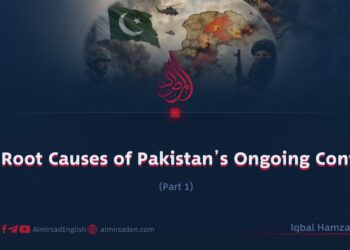Author: Uzair Azaam
The name of Palestine, especially Gaza, is deeply associated with terms such as martyrdom, wounds, imprisonment, and displacement. Simply hearing these words causes the hearts of devout Muslims to tremble with sorrow. In response, they express solidarity with their Palestinian brethren and the people of Gaza, shedding tears of helplessness as they mourn over their own inability to assist.
It is perhaps for this reason that the news of the martyrdom of another powerful leader of Hamas, Yahya Sinwar, did not come as a shock. Sinwar, a steadfast warrior against the Zionist ideology, was martyred as he faced constant threats of assassination and spy networks. His death seemed inevitable, as he had long been a target of the enemy’s bullets and traps.
In Afghanistan, countless young individuals on social media expressed their sorrow over Sinwar’s martyrdom. They circulated his dignified image, illustrating him standing against the Zionist and occupying regime on the battleground, defying all rumors suggesting he sought refuge in Hamas’ tunnels or mountainous terrain, distant from the conflict.
While many articles have already been written about Sinwar (may Allah have mercy on him), and more tributes will undoubtedly follow. However, a few key points about him are particularly important:
1. A Leader Among the Mujahideen:
Western and Israeli media frequently reported that Sinwar had retreated to Hamas’ tunnels and hideouts out of fear of attacks. However, his martyrdom proved otherwise. He was courageously fighting alongside his fellow warriors, directly challenging the Zionists.
2. A Hero in Politics and Military Strategy:
Some media outlets described him as a charismatic leader of Hamas and the Islamic movement. Many of Hamas’ political strategies and military operations were attributed to his keen intellect. Israeli military officials regarded him as a formidable thinker and an indomitable force, apprehensive of his influence in strategic decision-making.
His political and military acumen grew stronger over time. Following the martyrdom of former political leader Ismail Haniyeh, Sinwar emerged as the central figure around whom Hamas united.
3. The Architect of Al-Aqsa Storm:
This operation, executed successfully on October 7th, astounded the world with its precision and coordination. It not only dismantled Israel’s security infrastructure but also left the occupying forces, equipped with cutting-edge American-European military technology, in utter disbelief.
4. The Hero of Prisons:
During his university years, Sinwar organized Islamic resistance gatherings and engaged in various anti-occupation activities, covertly and overtly. As a result, he endured imprisonment four times, spending over two decades incarcerated. Despite enduring illness and torture, his Islamic faith remained unwavering, and he lived with dignity and honor.
5. A Martyr from a Family of Martyrs:
Similar to martyr Ismail Haniyeh, Sinwar had sacrificed numerous family members in the struggle for Palestine’s liberation. Ultimately, he too followed the same path, bidding farewell to life with pride and dignity.
6. A Trusted Fighter of His Leader:
From a young age, Sinwar was a trusted companion of Sheikh Ahmad Yassin, the founder of Hamas. Under Yassin’s tutelage, Sinwar evolved into a courageous warrior who upheld the principles of the Islamic movement and its struggle until his martyrdom.
In the end, Sinwar honored the promise he made earnestly: to either liberate the holy land of Palestine from Israel’s occupation or attain martyrdom in the process.
He remained true to his word. After leading a distinguished life of 62 years, Sinwar, born in a refugee camp in Khan Yunis in southern Gaza in 1962, faced death with dignity and his eyes raised to the heavens as he returned to his Creator.
Truly, every drop of Sinwar’s blood conveys a powerful message to today’s Islamic world, particularly to the pro-Western and corrupt leaders of neighboring Arab nations. It serves as a reminder that if they cannot stand by the oppressed people of Palestine and Gaza, they should refrain from aiding the enemy through their silence and submissive policies. If they fear their Western allies too greatly to speak out for the Palestinian children and martyred mothers, then they should abstain from using the language of human rights and democracy to criticize the Islamic movement or the struggle of Hamas’ mujahideen.













